Misdemeanors in Pennsylvania can include a wide range of infractions, including DUI, assault with injury, disorderly conduct, possession of drug paraphernalia, driving with a suspended license, shoplifting, resisting arrest, and much more.
Receiving notification of misdemeanor charges can be frustrating and scary, but contacting a reputable lawyer such as James Bonner is an excellent first step. Our experienced criminal attorneys in Pennsylvania can listen to your case and provide proactive service.
What Are the Different Levels of Misdemeanors in Pennsylvania?
If a prosecutor charges you with a crime, it’s essential to understand the severity of the charges and what sentencing may look like if you’re convicted. Crimes in Pennsylvania fall under three categories: infractions, misdemeanors, and felonies. Let’s define these terms and review the different levels of misdemeanors in Michigan to understand the distinctions and how being charged with a misdemeanor may affect you.
What Is Considered a Misdemeanor in Pennsylvania?
In Pennsylvania, a misdemeanor is a less serious criminal offense than a felony but more serious than a summary offense (similar to an infraction or a violation). Misdemeanors are punishable by fines, probation, and imprisonment in a county jail for up to five years. Some examples of misdemeanor offenses in Pennsylvania include:
- Simple assault
- DUI (driving under the influence)
- Reckless driving
- Disorderly conduct
- Theft of property valued at less than $2,000
- Possession of a small amount of marijuana
- Harassment
- Trespassing
- Criminal mischief
- Indecent exposure
- Prostitution
It’s important to note that the specific penalties for each misdemeanor offense depend on various factors, such as the severity of the crime, the defendant’s criminal history, and the judge’s discretion.
In Pennsylvania, misdemeanors are classified into three categories:
- Third-degree misdemeanor: This is the least serious type of misdemeanor offense in Pennsylvania. It is punishable by up to one year in jail and/or a fine of up to $2,500.
- Second-degree misdemeanor: This is a more serious type of misdemeanor offense. It is punishable by up to two years in jail and/or a fine of up to $5,000.
- First-degree misdemeanor: This is the most serious type of misdemeanor offense in Pennsylvania. It is punishable by up to five years in jail and/or a fine of up to $10,000.
Third-degree misdemeanors include simple assault, disorderly conduct, and property theft valued at less than $50. Second-degree misdemeanors include indecent exposure, stalking, and theft of property valued between $50 and $200. Examples of first-degree misdemeanors include terroristic threats, retail theft of property valued between $200 and $2,000, and certain types of drug offenses.
Can you go to jail for a misdemeanor in PA?
Yes, you can go to jail for a misdemeanor in Pennsylvania. Misdemeanors are criminal offenses that are less serious than felonies, but they still carry potential jail time as a possible penalty. The amount of jail time that can be imposed for a misdemeanor offense in Pennsylvania depends on the specific offense and the circumstances of the case.
Third-degree misdemeanors, the least serious type of misdemeanor offense, are punishable by up to one year in jail. Second-degree misdemeanors are punishable by up to two years in jail, while first-degree misdemeanors are punishable by up to five years in jail.
In addition to jail time, a judge may also impose fines, probation, community service, and other penalties for a misdemeanor conviction in Pennsylvania. The specific penalties for a misdemeanor offense depend on the severity of the offense and the discretion of the judge.
The court process for misdemeanors in Pennsylvania typically involves the following steps:
- Arrest: The defendant is arrested by law enforcement for the misdemeanor offense.
- Preliminary arraignment: The defendant is brought before a magistrate judge, who advises them of the charges and their rights and sets bail if necessary.
- Preliminary hearing: The prosecution must establish to the satisfaction of the judge that there is enough evidence to proceed with a trial. If the judge finds that there is sufficient evidence, the case is transferred to the Court of Common Pleas.
- Arraignment: The defendant is arraigned before a judge in the Court of Common Pleas. The judge advises the defendant of their rights, and the defendant enters a plea of guilty or not guilty.
- Pre-trial conference: The defendant and the prosecution may meet with the judge to discuss plea bargaining, evidence, and other matters related to the case.
- Trial: If the defendant does not plead guilty or accept a plea bargain, the case proceeds to trial. A judge or a jury will hear evidence and decide whether the defendant is guilty or not guilty.
- Sentencing: If the defendant is found guilty, the judge will impose a sentence, which may include jail time, fines, probation, and other penalties.
It’s important to note that the specific court process for a misdemeanor case can vary depending on the circumstances of the case, and the above steps may not apply in every situation.
Bonner Law Offices Provides Many Services in Misdemeanor Representation.
- Attend court dates on your behalf so you don’t miss work, family, or personal commitments.
- Arrange for phone appearances for those outside the county.
- Quash outstanding arrest warrants.
- File motions to modify release conditions.
- Raise pre-trial and trial defenses.
- File written motions.
- Communicate with detectives and police officers.
- Contact the prosecutor.
- Negotiate for dismissal, diversion, deferred judgment, or reduction.
- Protect firearm rights.
- Obtain discovery, evidence, and police reports.
- Invoke your right to remain silent.
- Interview witnesses and investigate the evidence.
- When necessary, fight the charges at trial.
- File motions to set aside a conviction and restore rights.
- Much more.
Call the Bonner Law Office f you have been charged with a crime. Our Media criminal defense law firm is committed to helping you fight the charges against you, whether that includes DUI, theft, drug-related crimes, violent crimes, domestic violence, property offenses, or other crimes. We are an affordable PA criminal defense firm, and we are ready to help you. Call us today to schedule an appointment with a Top Rated Media defense lawyer and learn more about your legal options.


